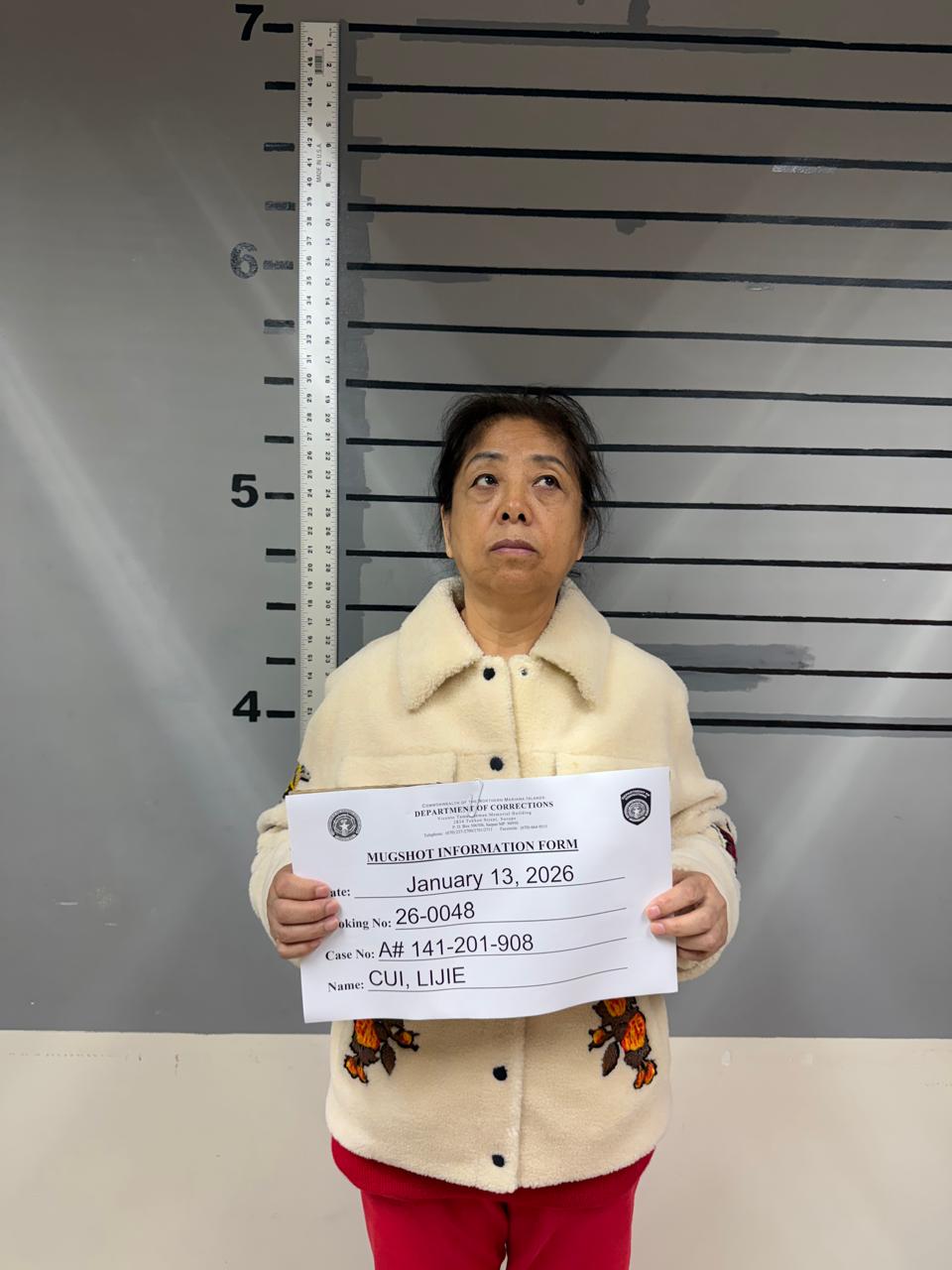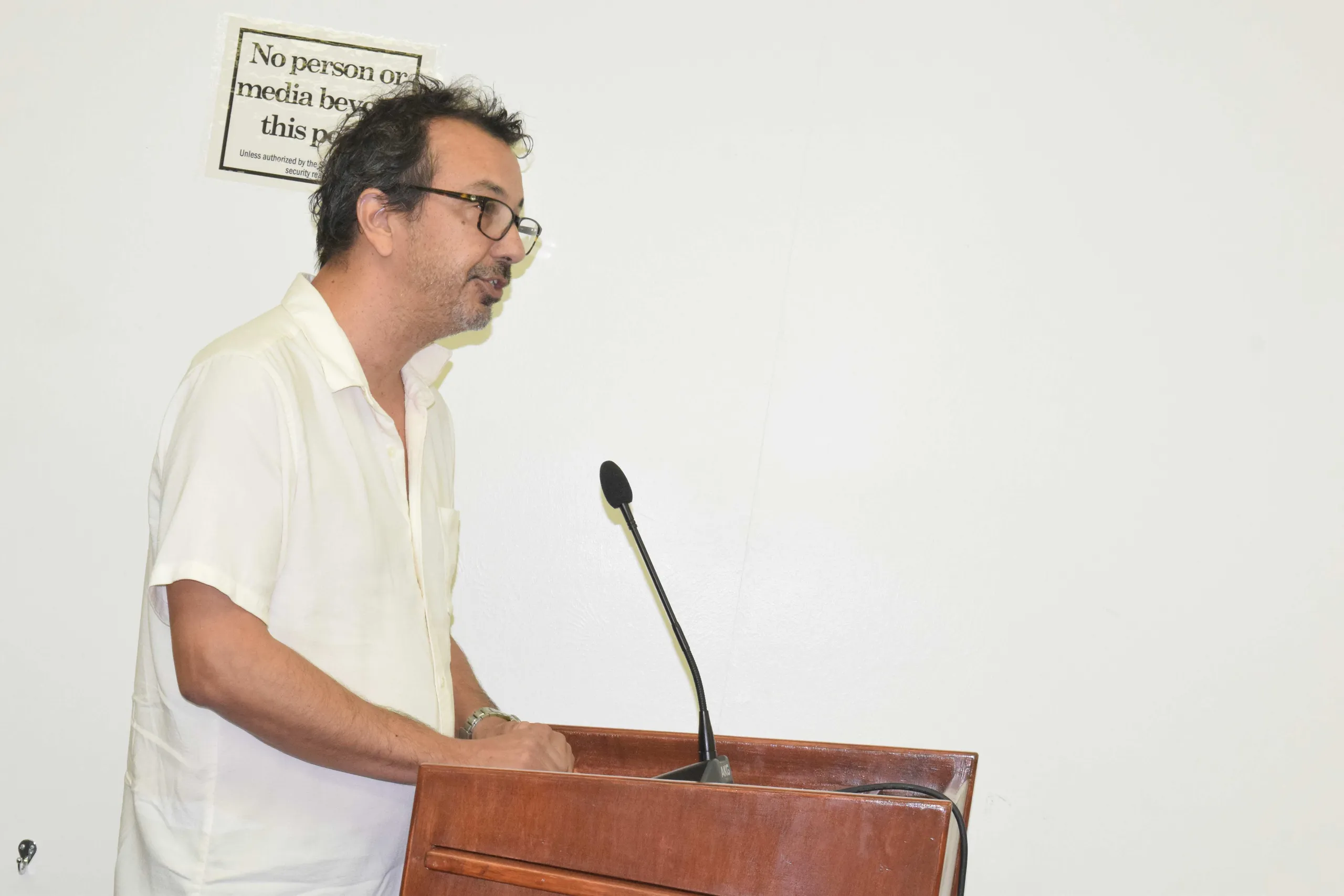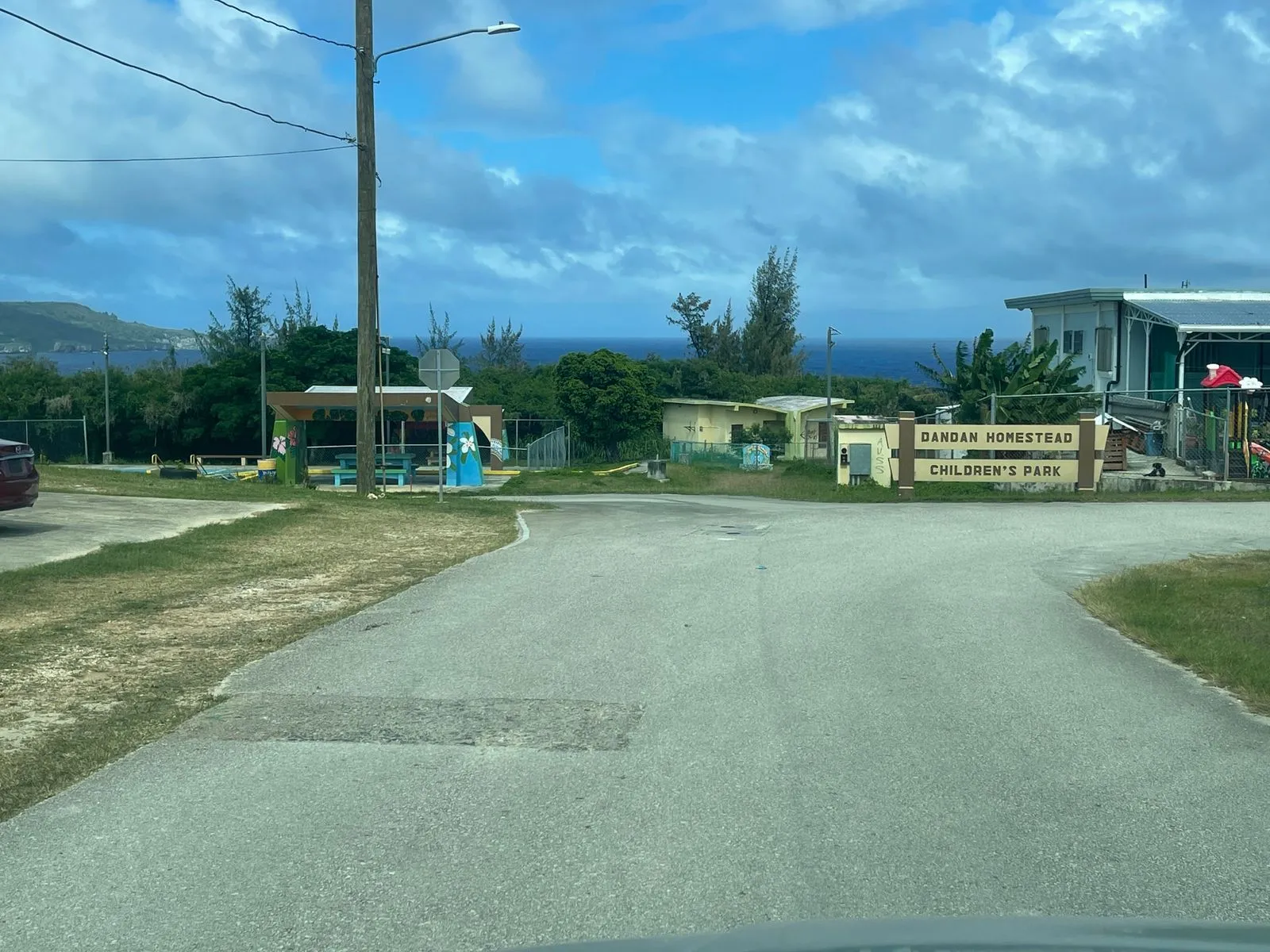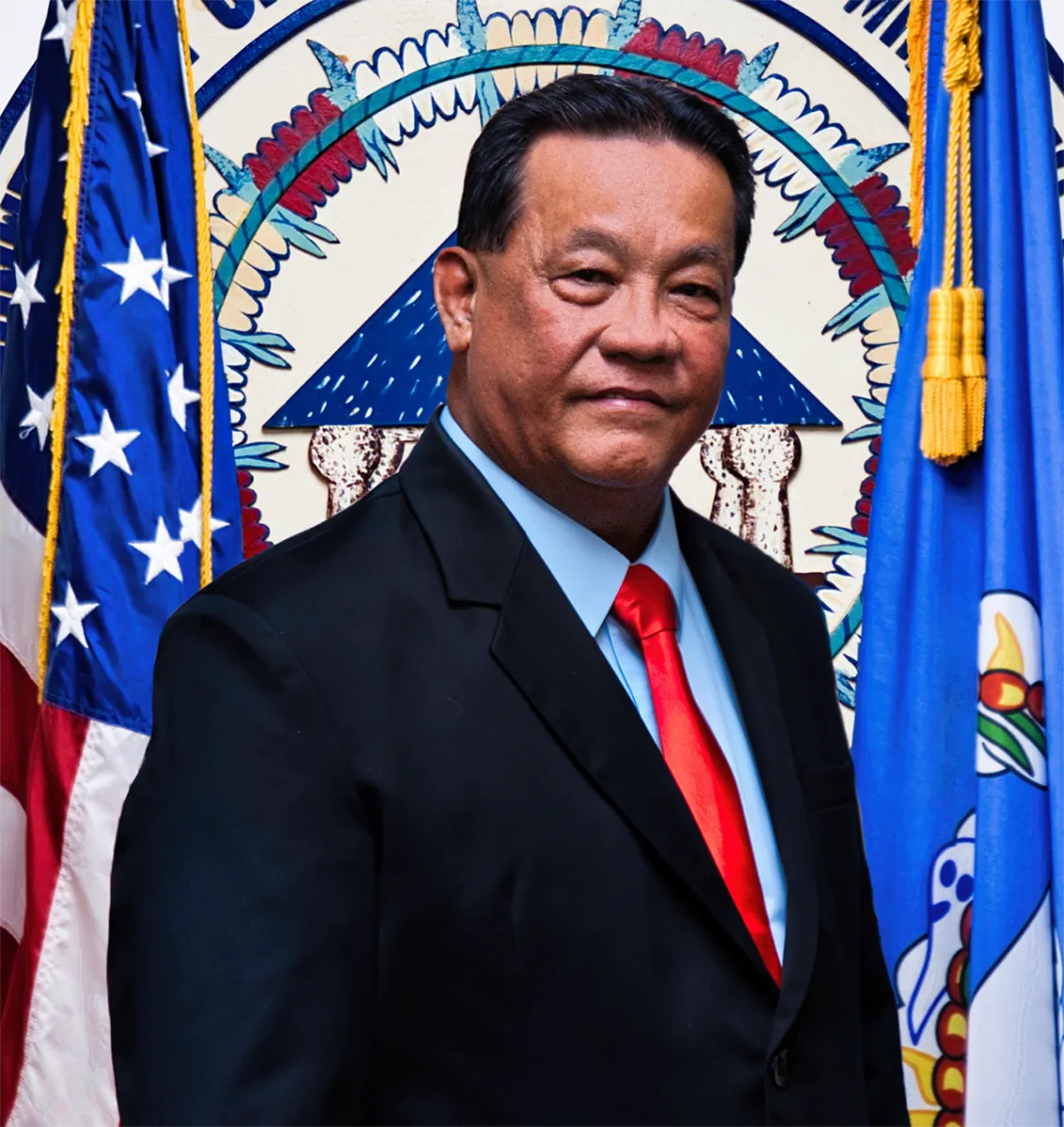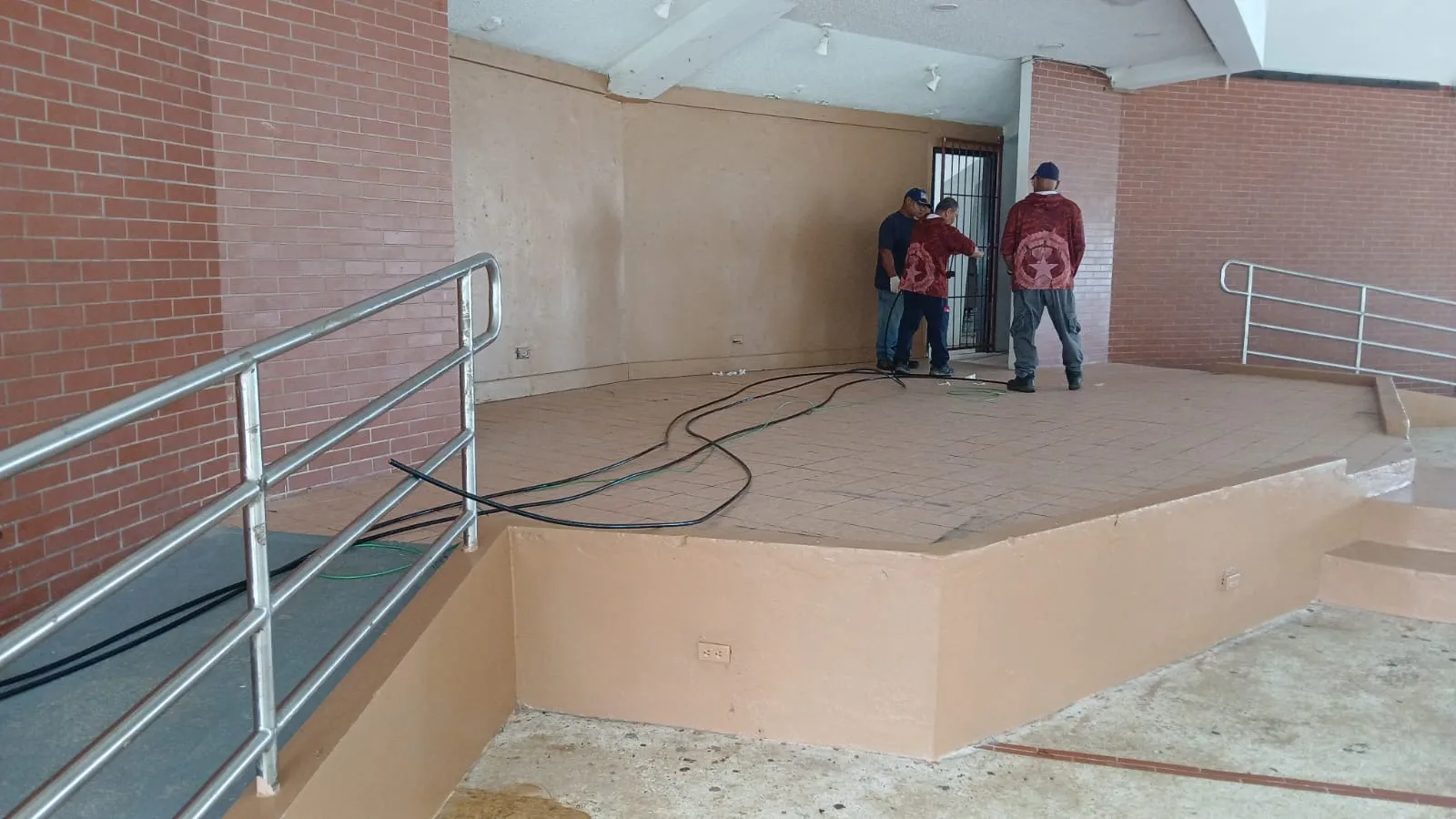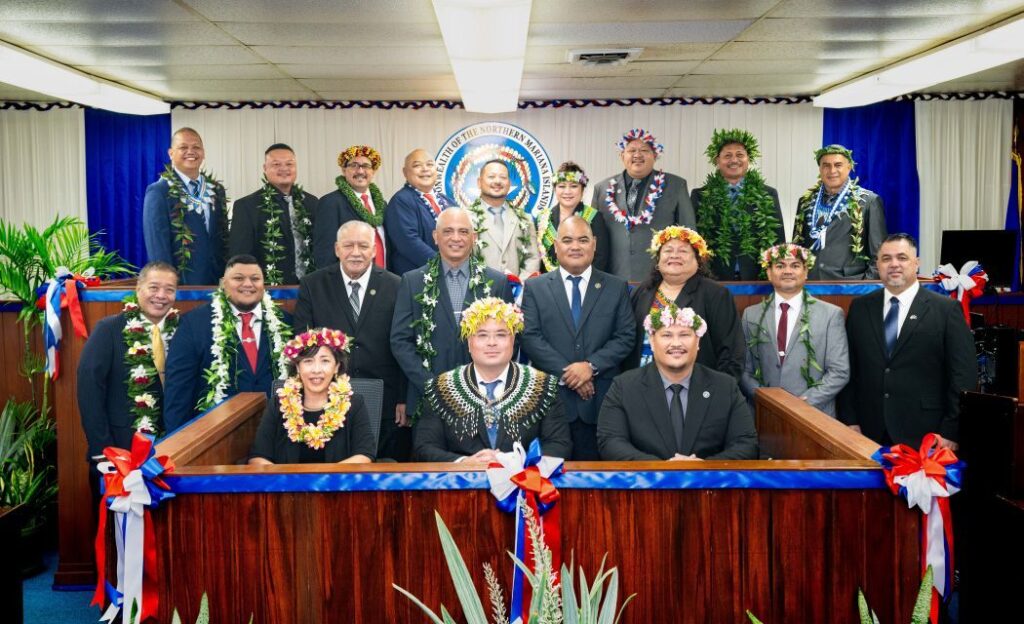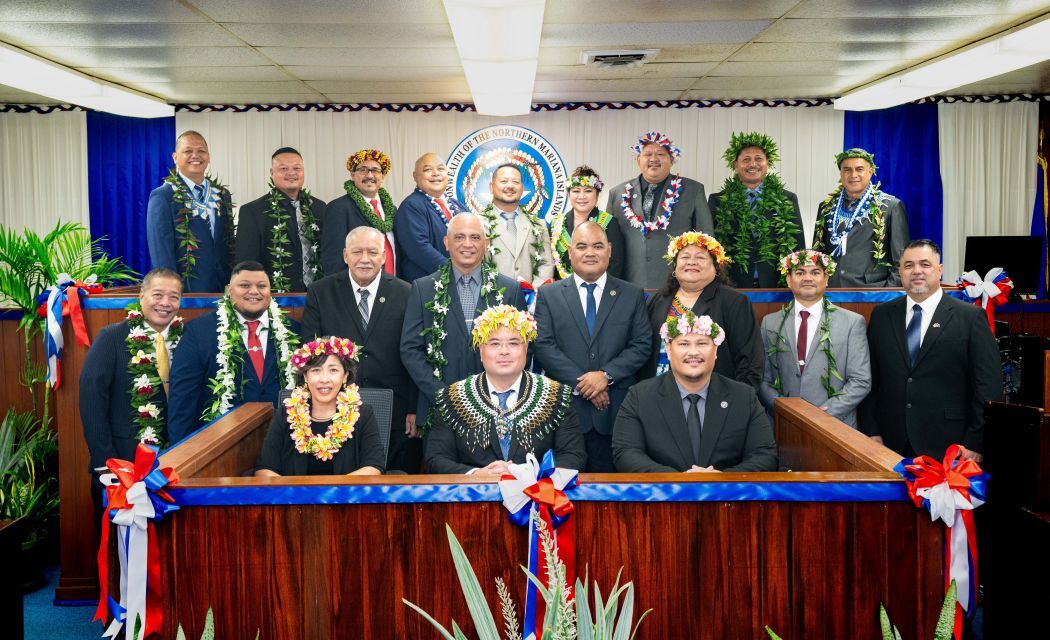
The members of the 24th House of Representatives pose for a photo in the House chamber.
MEMBERS of the CNMI House of Representatives, in a news release, are sounding the alarm over ongoing silence from federal agencies regarding the CNMI Economic Vitality & Security Travel Authorization Program or EVS-TAP, warning that the lack of transparency is straining the Commonwealth’s economy and eroding trust in its reputation as a reliable destination.
Speaker Edmund Sablan Villagomez, emphasizing the importance of intergovernmental coordination, and Rep. Julie Ogo, speaking from the perspective of the tourism industry, have each issued formal letters on the matter. Speaker Villagomez addressed his concerns to Gov. Arnold Palacios, while Rep. Ogo directed hers to U.S. Delegate Kimberlyn King-Hinds. Both Villagomez and Ogo expressed a shared concern: that the federal agencies responsible for EVS-TAP have failed to provide even basic communication or direction, creating uncertainty at a time when clarity is urgently needed.
“Money can be lost and eventually we may recover,” said Ogo. “But a loss of credibility is much harder to rehabilitate. Trust cannot be restored so easily. We need to be a destination that is reliable — one that airlines, investors, and travelers know they can count on. That requires communication and consistency from our federal partners.”
Although EVS-TAP was created to allow limited visa-free travel for Chinese nationals exclusively to the CNMI, with robust pre-travel vetting and federal oversight, its implementation has stalled without explanation. Federal agencies have yet to approve or deny pending applications, providing no explanation and leaving both local officials and private sector stakeholders in the dark.
According to Speaker Villagomez, “This is not just a paperwork delay. It’s a breakdown in the basic lines of communication that are essential to responsible governance. We are asking for answers — not special treatment — and we are prepared to work with federal partners if they engage. But without that engagement, it becomes impossible to plan, and the credibility of the CNMI suffers.”
EVS-TAP was developed through formal 902 consultations between the CNMI and the U.S. Department of the Interior during the first Trump administration as a security-conscious alternative to broader parole authority. Unlike standard U.S. visas, EVS-TAP is territorially restricted, applying only to the CNMI. Applications are vetted in advance — often over several days — and require pre-embarkation approval, offering federal agencies more control, not less.
Vice Speaker Diego Vincent Fejeran Camacho also emphasized the importance of federal clarity:
“This is not a backdoor or a loophole. It’s a federally supervised, limited-entry system that was designed to meet national security standards. Right now, what’s missing is not law or oversight — it’s federal follow-through and basic transparency.”
Rep. BJ Attao, chairman of the House Committee on Federal and Foreign Affairs, closed with a reminder of the stakes:
“This is a federal matter with broad territorial implications. The EVS-TAP program lies at the nexus of national security and local economic sustainability. As chair of Federal and Foreign Affairs, I am monitoring this issue closely on behalf of the Legislature and the people of the Marianas. It is essential that we remain fully engaged with our federal counterparts while working in partnership with our own administration. The Commonwealth has always demonstrated that we are a capable and constructive partner to the United States — and we expect our intergovernmental agreements to be treated with the same seriousness.”
The CNMI House of Representatives indicated that it stands ready to engage in further oversight and federal dialogue, and will continue advocating for the timely and transparent administration of the EVS-TAP program.


